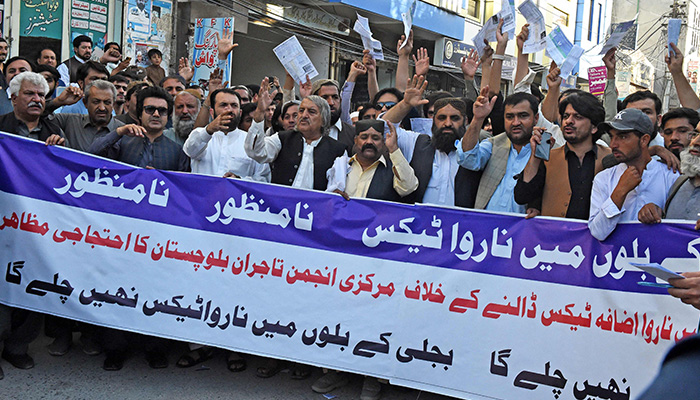
[ad_1]
ISLAMABAD: The interim government, amidst nationwide protests against inflated electricity bills, has formulated a plan to alleviate the burden of hiked electricity bills on consumers, sources told Geo News on Monday.
According to the sources, the caretaker government intends to grant relief of Rs3,000 to consumers who utilise up to 300 units of electricity in their bills for October.
Additionally, consumers charged with electricity bills ranging from Rs60,000 to Rs70,000 will be provided a substantial relief via a reduction of up to Rs13,000, the sources added.
Insiders have, furthermore, disclosed ongoing discussions between the caretaker government and the International Monetary Fund (IMF) regarding relief measures for power consumers.
Meanwhile, The News reported that the Washington-based global lender has sought more data from the Power Division for its decision on various suggestions forwarded to the Fund seeking relief in the increased bills for August and September.
“We have shared the required data with the Fund people hoping that IMF may today (Monday) come up with its response with a yes or no to the assertions of the Finance and Power Divisions, seeking permission for relief to inflation-stricken people in electricity bills,” some top sources engaged with the IMF told the publication.
“At the moment, authorities of both Power and Finance divisions are in hectic talks with the Fund people on the data related to suggested measures for solace in power tariffs and their possible impact on circular debt, cash flow situation and further delays to IPPs, ultimately making the power sector more unsustainable.”
Following continuous protests by citizens and traders, who have taken to the streets against the exorbitant hikes in power bills and addition of taxes, the caretaker Prime Minister Anwaar-ul-Haq Kakar-led setup in Islamabad has been trying to woo the global lender to agree to provide immediate relief for electricity consumers in the cash-strapped country, where people are already battered by skyrocketing inflation.
The interim premier, on August 31, had assured about the likelihood of the Fund nodding to the government’s relief-related proposal — aimed at providing relief to the public — in 48 hours, but it kept waiting to hear back after the deadline elapsed.
The IMF was earlier briefed about the said proposal, under which some portion of the tariff — up to 30% for August and September — would be scaled down and the impact of reduced tariff would be passed on to consumers in six months of the winter season, from October 2023 toMarch 2024 in a staggered manner.
[ad_2]
Source link
